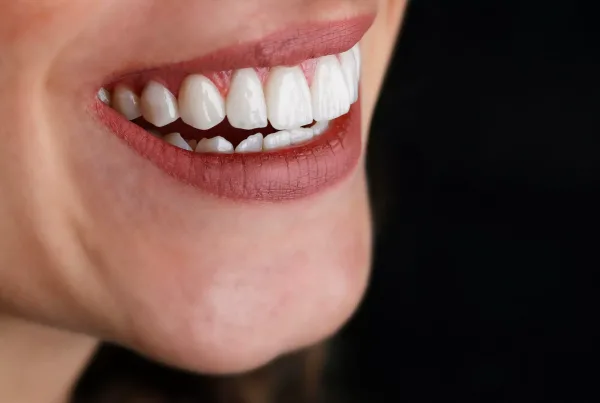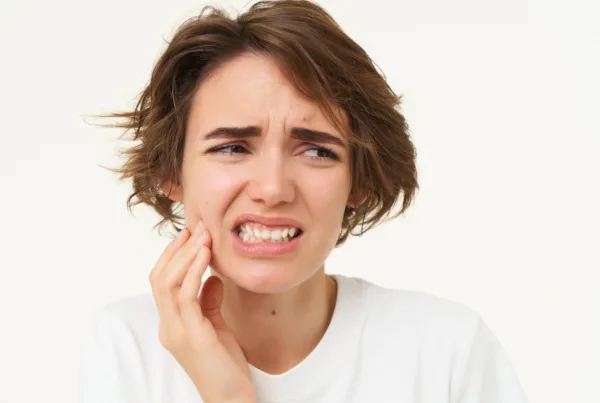
Wisdom tooth extraction can be a worrying experience for many people. However, proper nutrition and care can speed up and alleviate the healing process. This article will examine what you need to know about post-wisdom tooth extraction nutrition and care.
Wisdom Tooth Extraction
Wisdom tooth extraction is the removal of one or more teeth by dentists. These teeth are located at the back of the mouth and emerge during adulthood. Wisdom tooth extraction may be necessary for various reasons:
- Crowding: Wisdom teeth may become jammed between other teeth due to inadequate jaw structure.
- Tooth Misalignment: Improper angle of eruption of wisdom teeth can disrupt the alignment of other teeth and cause misalignment.
- Infection: Extraction may be necessary if an infection occurs in the area where wisdom teeth are erupting.
- Pain and Discomfort: Pain, swelling, and other discomforts may occur during or after wisdom teeth eruption.
Wisdom tooth extraction is performed under local anesthesia and is usually completed quickly. However, in some cases, interventions may take longer, mainly due to the position or root structure of the tooth.
Wisdom Tooth Extraction Treatment
Wisdom tooth extraction treatment is applied to many people due to various conditions. Some important points regarding wisdom tooth extraction treatment are:
- Examination and Diagnosis: You need to be examined by a dentist to determine if wisdom teeth need to be removed. X-rays can provide more detailed information about the position of the teeth and surrounding tissues.
- Stitches and Wound Care: Stitches may be placed in the site after wisdom tooth extraction. You may need to perform wound care according to your dentist’s instructions. This will help reduce the risk of infection and speed up the healing process.
- Follow-up Visit: It is important to schedule follow-up visits with your dentist at specific intervals after wisdom tooth extraction. Your healing process is evaluated during these visits, and any complications are detected early.
Wisdom tooth extraction treatment is a safe and short procedure. It is recommended to consult your dentist immediately in case of any discomfort or complications.
Wisdom Tooth Healing Process
The healing process after wisdom tooth extraction can vary from person to person but generally passes through certain stages and may take a few weeks.
First 24 Hours
Pain, swelling, and slight bleeding are expected within the first 24 hours after wisdom tooth extraction. You can manage pain by regularly using painkillers recommended by your dentist. Applying ice in the first few hours can reduce swelling. You can apply ice through a cloth or bag without direct contact with the skin.
48 Hours Later
Bleeding should decrease within the first 48 hours. Mild wound healing should begin in the extraction area. At this stage, be careful not to touch your stitches. If bleeding continues or you observe an increase in bleeding, you should consult your dentist.
First Week
Pain and swelling should continue to decrease during the first week. However, mild discomfort is expected during this period. You can continue to consume soft and easily chewable foods as your dentist recommends.
Take care of your oral hygiene and clean the extraction site according to your dentist’s instructions.
Second Week
By the second week, pain and swelling should have largely subsided. However, wound healing may continue, and there may be sensitivity in the extraction area.
Remember to attend your appointments for check-ups determined by your dentist. Your healing process is evaluated during these check-ups, and necessary measures are taken.
Third and Fourth Weeks
Wound healing in the extraction area is usually completed by the third and fourth weeks. However, the entire healing process may vary from person to person.
Successful management of the healing process after wisdom tooth extraction requires careful care and appropriate treatment. However, you should consult your dentist immediately if you experience any complications or excessive pain. Proper management of the healing process is essential for maintaining long-term oral health.
Infection After Wisdom Tooth Extraction
Infection after wisdom tooth extraction is a complication that many people may encounter. Infections usually occur in or around the extraction site in the mouth and may manifest with the following symptoms:
- Swelling and Redness: Swelling and redness may become apparent in the extraction area. These symptoms may indicate the presence of an infection.
- Pain: Pain, which should decrease during the normal healing process, may increase and become more severe in the case of infection.
- Bad Taste and Odor: An infected extraction site may produce a bad taste or odor.
- High Fever: The body may respond to an infection with a fever. A high fever may indicate the presence of a disease.
- General Weakness and Feeling Unwell: Infection may cause the body to feel generally weak and tired.
You should immediately consult your dentist if you notice signs of infection after wisdom tooth extraction. Early diagnosis and treatment will prevent the spread of infection.
Can You Smoke After Wisdom Tooth Extraction?
Smoking after wisdom tooth extraction is not recommended, and it is best to quit smoking. Smoking can negatively affect the healing process because tissue healing may be slower in smokers. Smoking can increase the risk of infection and prevent the tissues in the extraction site from healing properly.
Cigarette smoke can irritate sensitive tissues in the extraction site and cause pain. Additionally, smoking can lead to gum problems and other oral health issues. Quitting smoking will improve your overall health and accelerate the healing process in your mouth.
Can You Eat Hamburger After Wisdom Tooth Extraction?
Eating hamburgers is not recommended after wisdom tooth extraction. Hard and difficult-to-chew foods like hamburgers can exert pressure on the tissues in the extraction site, thus negatively affecting the healing process. Spices and sauces in foods like hamburgers can irritate the sensitive tissues in the extraction site, increasing the risk of infection.
Is Drinking Coffee Harmful After Wisdom Tooth Extraction?
Drinking coffee after wisdom tooth extraction is not recommended. Due to its caffeine content and temperature, coffee can irritate the sensitive tissues in the extraction site and negatively affect the healing process. Additionally, caffeine in coffee can dilate blood vessels, increasing the risk of bleeding and exacerbating pain.
It is essential to avoid hot or irritating beverages in the first few days after wisdom tooth extraction to protect the sensitive tissues in the extraction site and reduce the risk of infection. Resuming the consumption of hot beverages like coffee should be done when the healing process is complete and the extraction site has healed.
Best Foods to Eat After Wisdom Tooth Extraction
The best foods to eat after wisdom tooth extraction support healing in the extraction site and help reduce pain. These are soft, nutritious, and easily digestible foods.
- Soft Yogurt: Yogurt facilitates digestion with its high protein and probiotic content.
- Pureed Vegetables: Pureeing vegetables such as carrots, zucchini, and potatoes increases vitamin and mineral intake while reducing chewing difficulty.
- Soup: Vegetable or chicken broth-based soups are nutritious and easily digestible. They also support hydration by increasing fluid intake.
- Soft Fruits: Soft fruits like bananas, pears, and cantaloupes facilitate digestion with their fiber content and provide minerals to the body.
- Smoothies: Fruit smoothies based on yogurt or milk provide energy with their nutritious content while applying minimal stress to the extraction site.
- Soft Meats: Boiled chicken or turkey and other soft meats support the body’s healing process with their high protein content.
- Milk and Dairy Products: Milk, cheese, yogurt, and other dairy products are rich in calcium and protein, supporting bone health.
In addition to these foods, drinking plenty of water is essential during the healing process. A soft and nutritious diet can accelerate the healing process and reduce pain.
Is Drinking Pineapple Juice Before Wisdom Tooth Extraction Beneficial?
Drinking pineapple juice before wisdom tooth extraction may be beneficial for some people. Bromelain, an enzyme found in pineapples, has natural anti-inflammatory properties. Bromelain can reduce inflammation, thus alleviating swelling and pain after extraction.
However, pineapple juice may have a different effect for everyone. Pineapple juice naturally contains sugar, so consumption of sweet beverages is generally not recommended after tooth extraction. Pineapple juice can increase the risk of infection and damage your teeth.
Drinking pineapple juice before wisdom tooth extraction has no negative effect, and it may provide mild relief for some individuals. It is recommended that you consult your doctor regarding this situation.





